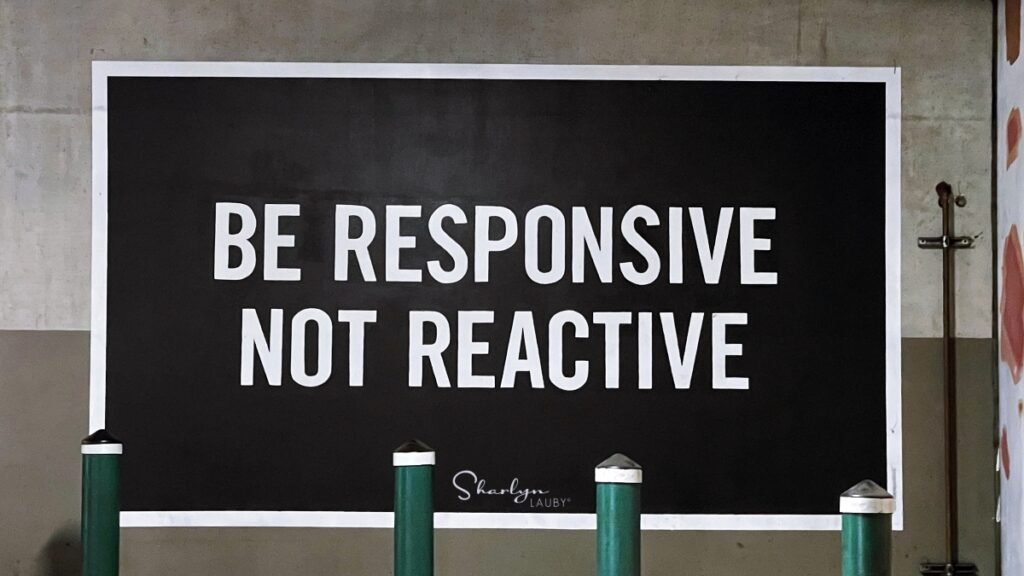Estimated reading time: 7 minutes
Today’s article is a very serious one. I received a note from a person who said that their manager had threatened them with physical harm. I’m not going to share the note because honestly, I’m not completely sure if it’s legit. Part of me says that the last person you would reach out to if you were threatened is the writer of a human resources blog.
That being said, the person’s note did remind me that employees do receive threats. So, I wanted to see if we could chat about what employees should do if they receive a threat in the course of doing their job.
To offer some insights, I asked employment attorney Donna Ballman to share her expertise. She has helped us in the past and our interview on workplace retaliation is one of my favorites. Donna’s work focuses on employee-side employment law issues, so whether you’re an employee or an employer, these insights will prove to be valuable.
Please remember that Donna’s comments should not be construed as legal advice or as pertaining to any specific factual situations. If you have detailed questions, they should be addressed directly with your friendly neighborhood employment law and labor attorney.
Donna, thanks so much for helping us today. Before we talk about threats, I wanted to ask if there is a difference between workplace bullying and threats?
[Ballman] Well, yes and no. Workplace bullying is not generally illegal. Threats of physical harm could be a crime, obviously depending on the context and content of the threat. Workplace bullying is only illegal if the person is being targeted due to a legally protected category, such as race, age, sex, national origin, disability, etc., or things like blowing the whistle on illegal activity or a worker’s compensation claim.
Thanks for the clarification. Let’s specifically talk about threats. If an employee receives a threat during work, what should they do?
[Ballman] If it’s a real threat and they feel that they are about to be harmed, call 911. However, I’ve run into many employees who were fired for calling 911. Firing someone for calling 911 is not illegal in my state (Florida), but there may be legal protections in some states.
Don’t just leave the premises. They can definitely fire you for that. Unless the police or 911 tell you to leave, stay until someone in management tells you to go.
If the employee doesn’t feel that there’s an immediate risk of harm, I’d say report it in writing to HR and/or someone in management. Make note of the exact quote as much as possible, any witnesses, and the context. Obviously don’t engage in any arguments or physical altercations with the person making the threat.
When it comes to threats, does it matter who initiated the threat (meaning a customer versus a co-worker / manager)?
[Ballman] Of course it does! The company is almost certainly going to be more protective of a customer than an employee. If it’s a customer, reporting it to a manager who is on duty makes sense if it’s not a 911 situation. If it’s a coworker, then the manager similarly may well be the person to contact. If it’s the manager, then you’d have to notify someone above them or HR.
Speaking of contacting HR, do employees have an obligation to tell the company versus let’s say going directly to law enforcement?
[Ballman] While ‘obligation’ may be a strong word, they certainly should notify the company. Once the company is on notice that someone has a propensity to violent behavior, they have additional potential liability if the person acts on the threat.
Does the situation change if an employee receives a threat outside of work hours, but it’s work related? For example, if someone receives a threat via text after work hours.
[Ballman] At least it would be in writing, so there’s proof. Verbal threats can be difficult to prove, but a written threat is hard for the company to ignore. My advice would be the same though. I’d add don’t refuse to go to work. They can fire you for that. Once you report it, they have a duty to keep a safe workplace.
Moving away from threats for a moment. If an employee hasn’t received a threat, but they are concerned about the behavior of a co-worker (maybe there have been some remarks or rudeness), should an employee consider reporting that to the organization?
[Ballman] Bullying is not illegal. However, bullies tend to pick on people who may fit within protected categories. If you complain, you’ll want to complain in a way that is legally protected against retaliation. What I hear way too much of is, ‘I was harassed, so I quit, and then I told them why.’ This is a frequent mistake.
The United States Supreme Court says that, where an employer has a published sexual harassment/discriminatory harassment policy, the employee must report it under that policy and give the employer the opportunity to fix the situation. If you did not avail yourself of the employer’s policy before quitting, you are giving up your right to sue for a violation.
Once you report, appropriate remedies may be to discipline or warn the harasser, to move the harasser, under some circumstances to move the victim, to do training, or in extreme cases, to terminate the harasser. But they don’t have to take any action at all. They only have a duty to maintain a safe workplace. You might still have to work with the harasser.
Before you write the long letter airing all your grievances against your boss, you may want to have an attorney look at it, or just make sure you are addressing your protected status. If you do complain, put it in writing and call it, “FORMAL COMPLAINT OF SEXUAL HARASSMENT,” or “FORMAL COMPLAINT OF RELIGIOUS HARASSMENT” or whatever category you fit into. Set forth the harassment due to your protected status and be businesslike.
This is not the time to air all your complaints about the business or your boss, only to air the specific complaint about the illegal behavior. If you are harassed or are in a hostile work environment, make sure you understand your rights and responsibilities. Report it to the employer and give them a chance to address the situation. If they allow the harassment to continue, or if they retaliate, contact an attorney to discuss your legal options.
Last question and this is more for organizations. What can companies do to send the message that they will not tolerate bullying or threats in the workplace?
[Ballman] Bullies are a huge drain on corporate time and assets. Employers should adopt zero tolerance policies regarding bullies. Employers will usually take accusations of this type of conduct seriously. Once they are on notice, they will be held liable if they allow it to continue, and they know it. And most employers know that this behavior is disruptive, has nothing to do with making money, and can adversely affect morale.
Even if the employer takes no action, by reporting it, you have put the company on notice that this behavior is occurring. The employer will have no excuse when the harasser does it to the next employee. And in some cases, you may have a remedy.
A huge thanks to Donna for sharing her knowledge with us. Be sure to check out Donna’s blog “Screw You Guys, I’m Going Home”. She also has a great book out titled “Stand Up for Yourself Without Getting Fired”.
I don’t believe it’s unrealistic to say that there will be times when we disagree with people at work. But that shouldn’t escalate to bullying or threats. If you feel that you’re being bullied or treated inappropriately, please do something: review your company policies and notify the organization.
Image captured by Sharlyn Lauby while exploring the streets of Gainesville, FL
The post When an Employee is Threatened at Work – Ask #hr bartender appeared first on hr bartender.




0 Commentaires